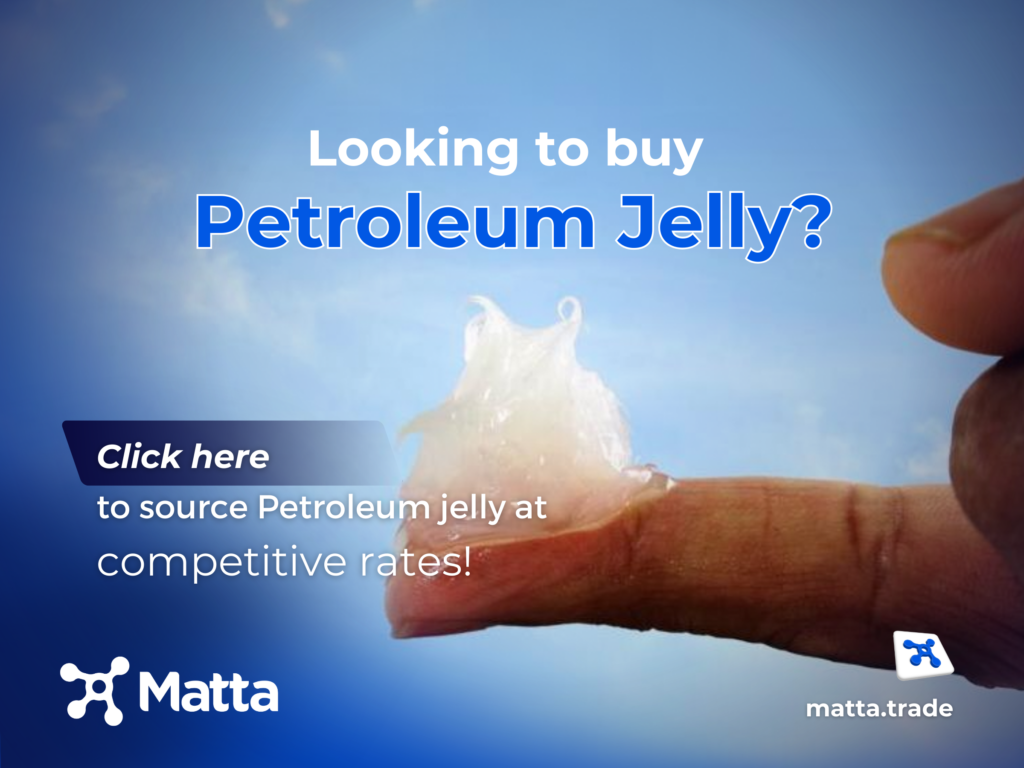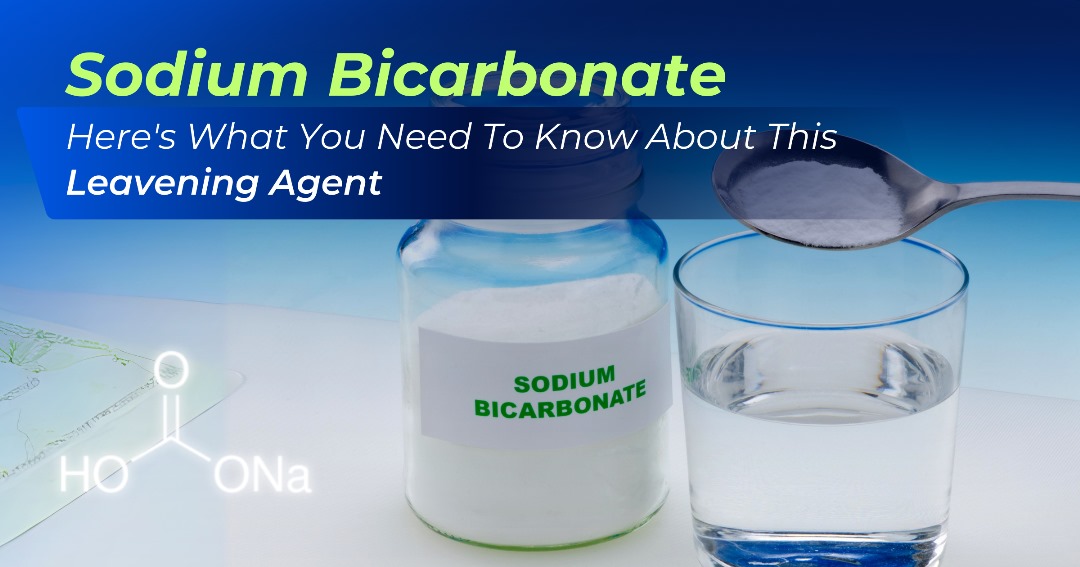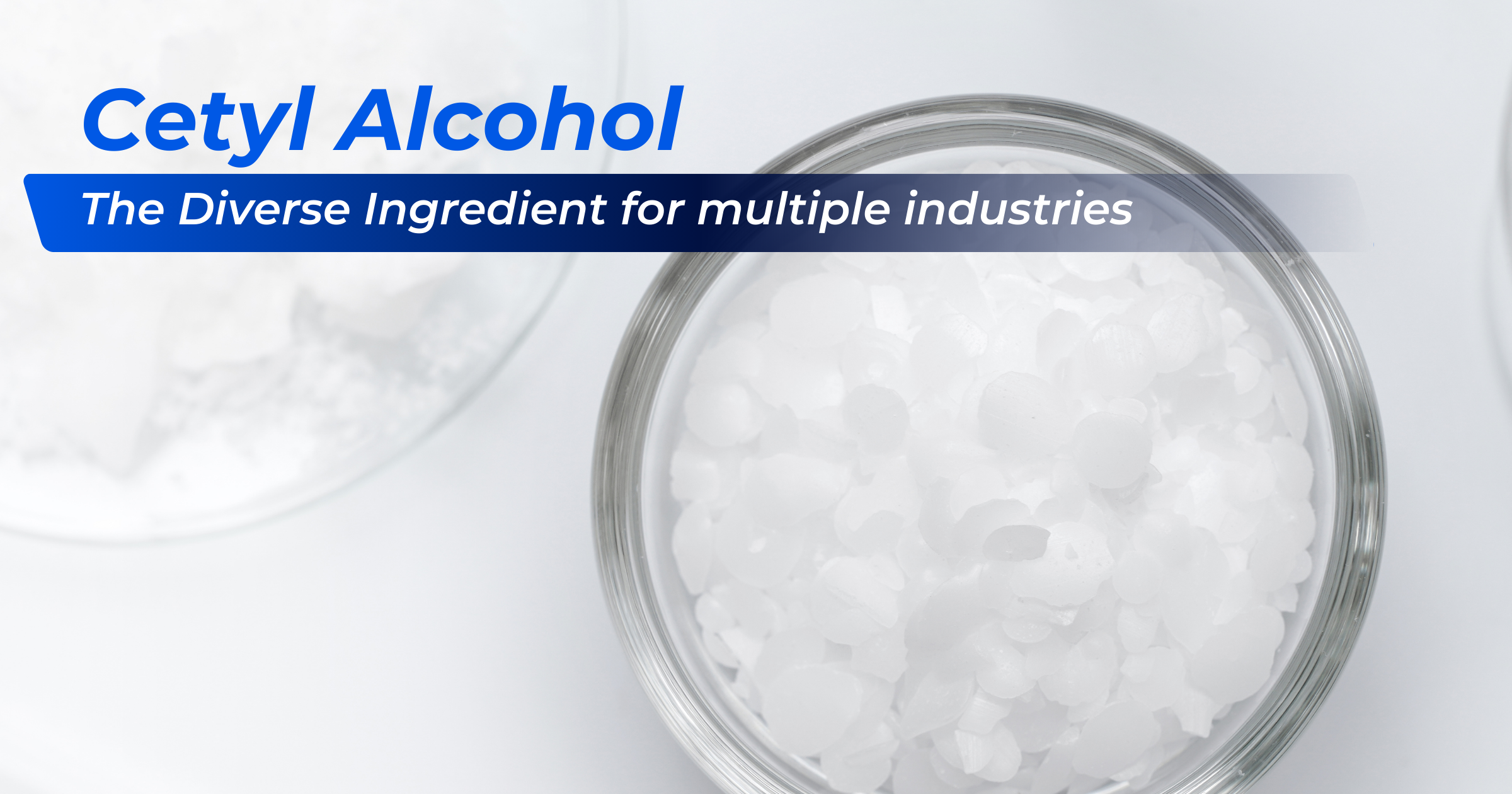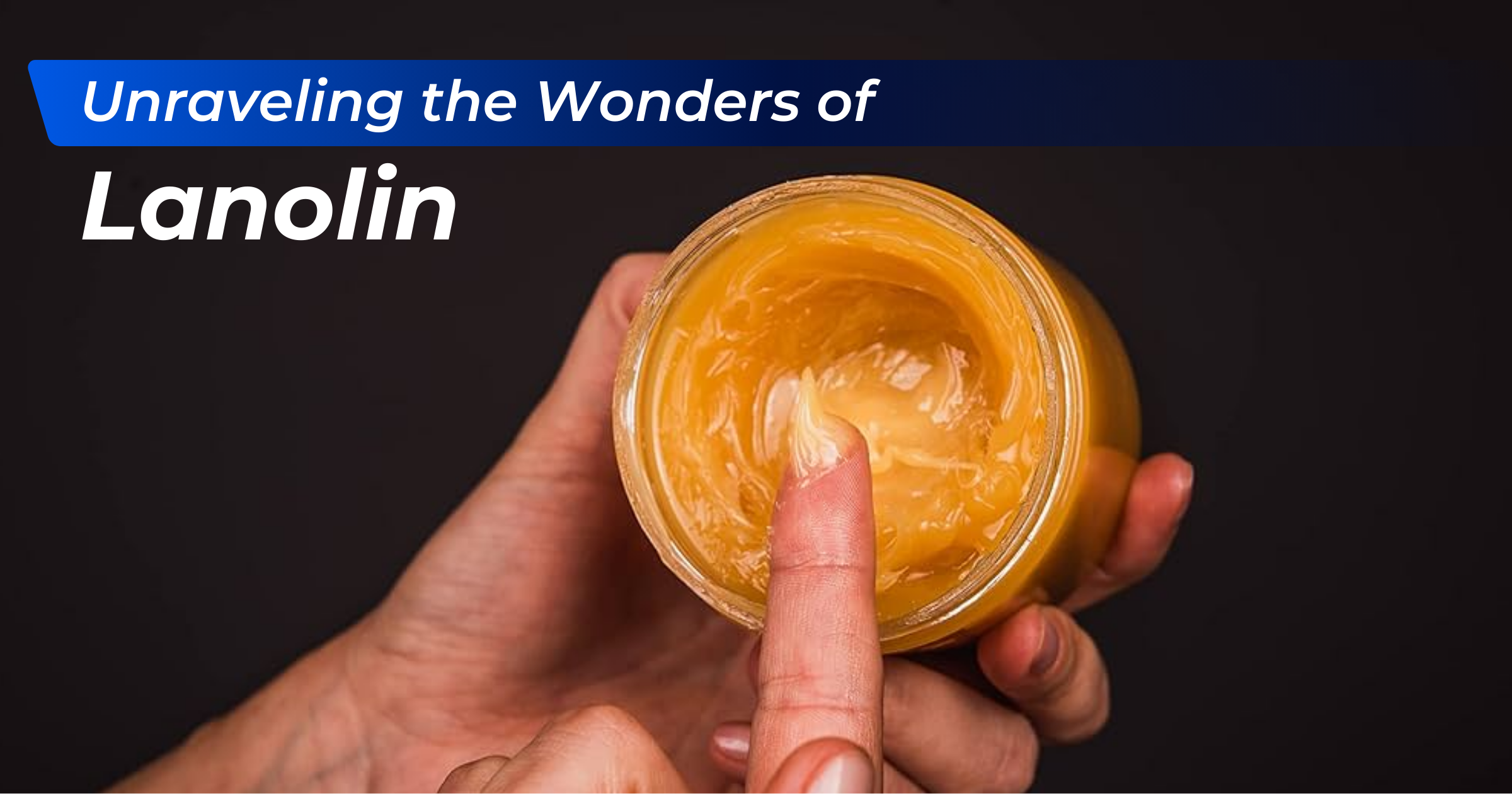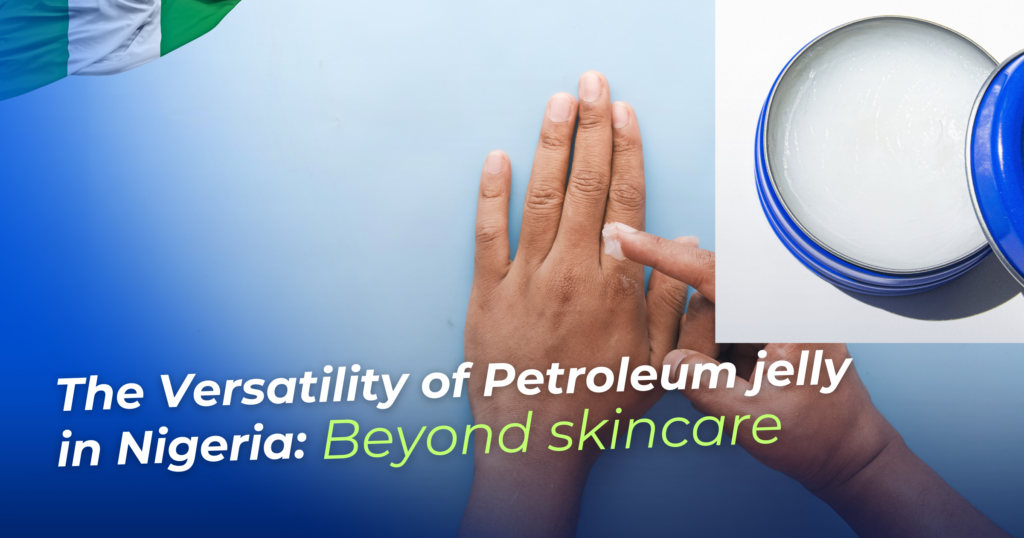
In Nigeria, petroleum jelly has long been hailed as a skincare savior, a household name that has found its way into nearly every home. But what if we told you this humble jelly jar is a silent revolutionary with applications far beyond skincare? From the gears of industrial machines to the corridors of hospitals, petroleum jelly is one ingredient with vast applications. Sit back as we explore the incredible versatility of petroleum jelly in Nigeria.
You know that little jar of petroleum jelly sitting in your bathroom cabinet? Sure, it’s your go-to for chapped lips and dry elbows, but have you ever wondered what else it can do?
Well, buckle up because we’re about to take you on a fascinating ride through the world of petroleum jelly—a ride that goes way beyond skincare. This unassuming substance is a real game-changer from factories to hospitals and even in some of the gadgets you use every day.
So, why should you care? Understanding the full scope of petroleum jelly’s capabilities can make your life easier and open doors to innovation and sustainable practices, especially here in Nigeria.
Let’s dive in!
The Chemistry Behind Petroleum Jelly
Firstly, let’s give credit to Robert Chesebrough, the chemist who discovered petroleum jelly and dedicated years to studying its properties. Alongside him, chemists like Sir William Henry Perkin explored its potential in the late 19th century.
The University of Berlin became a hub for early research, revealing petroleum jelly’s unique hydrophobic properties. Fast forward to the 1960s, NASA engineers utilized it as a lubricant and sealant during the Apollo missions.
Meanwhile, companies like Unilever and Johnson & Johnson continually refined its production for purity and effectiveness.
Applications of Petroleum Jelly in Nigeria (Beyond Skincare)
Petroleum jelly boasts a range of diverse applications across various fields, particularly in healthcare and automotive industries.
In Healthcare:
- Wound Care: Healthcare professionals often use petroleum jelly to treat minor burns and cuts. Its moisture barrier aids the healing process, providing immediate relief.
- Surgical Procedures: Surgeons in Nigeria apply petroleum jelly to lubricate instruments, reducing friction during procedures.
- Pharmaceutical Uses: Many medications incorporate petroleum jelly as an inactive ingredient, acting as a ‘vehicle’ in ointments and creams to enhance the delivery of active components.
- Respiratory Treatment: In traditional Nigerian communities, petroleum jelly serves as a respiratory aid, applied inside the nostrils to trap dust and pollen during harmattan.
- Dental Uses: Dentists use petroleum jelly to lubricate braces and orthodontic appliances, easing discomfort for patients.
In Automotive and Industrial Machinery:
- Lubrication: Petroleum jelly acts as a lubricant for moving parts in cars and machinery, reducing wear and ensuring smooth operation.
- Sealant Specialist: It rejuvenates gaskets, preventing leaks in engines and machinery.
- Corrosion Prevention: Its water-repellent properties protect metal parts from rust and corrosion, particularly in coastal areas.
- Battery Life Booster: A thin layer on battery terminals prevents corrosion, promoting longer battery life.
- Wire and Cable Protection: It safeguards wires and cables from temperature extremes, preventing degradation and short circuits.
Beyond traditional skincare, beauty experts are finding new ways to incorporate petroleum jelly into routines. It’s becoming a staple in beauty bags worldwide, from taming eyebrows to creating a dewy makeup look. Let’s delve deeper into the alternative applications.
In Beauty and Cosmetics:
- Lip Care: Firstly, beyond moisturizing chapped lips, it serves as a base for DIY lip glosses and tints, allowing for custom shades with a glossy finish.
- Makeup Highlighter: Secondly, dabbed on cheekbones and brow bones, it creates a subtle highlight, reflecting light for a radiant glow.
- Fuller Lashes: Thirdly, a small amount applied to lashes offers a natural, fuller look, making it ideal for sensitive eyes.
- Eyebrow Tamer: It acts as a natural brow gel, keeping stray hairs in place for a neat appearance.
- Makeup Remover: Effective for removing stubborn makeup, including waterproof mascara, it’s gentle on sensitive skin.
- Nail Nourisher: It softens cuticles and adds shine to nails, enhancing manicure routines.
- Post-Shaving Soother: It moisturizes and relieves dry, irritated skin after shaving.
- Foot Care: Lastly, when applied generously and covered with socks overnight, it deeply hydrates cracked heels.
In Fashion and Textiles:
- Dyeing Fabric: It acts as a resistor to prevent dye from adhering in certain areas, helping create unique patterns.
- Threading Aid: Also, a touch of petroleum jelly binds frayed thread ends, simplifying the threading process.
- Jewelry Slide Solution: It further lubricates tight rings, making them easier to wear or remove.
Petroleum jelly truly excels as a multi-functional product!
Other Unconventional Uses of Petroleum Jelly in Nigeria.
Used to stop squeaks
That annoying squeaky door hinge or stubborn window? A dab of petroleum jelly can also work wonders. It acts as a lubricant, ensuring smooth movement and ending those irksome sound.
Used to shine leather shoes
Want to give your leather shoes a quick shine before heading out? Petroleum jelly to the rescue! Just a tiny amount buffed onto your shoes can give them a fresh-out-of-the-box gleam. Plus, it helps in keeping the leather supple.
Used by candle lovers
If you’re a fan of candles, this one’s for you. Rubbing a bit of petroleum jelly on the base of a candle before placing it in a holder makes it easier to remove when it’s time to replace it. No more wrestling with melted wax!
The Zipper Fix
Stuck zipper on your favourite bag or jacket? Instead of tugging and pulling, try applying a touch of petroleum jelly along the teeth of the zipper. It’ll glide smoothly, saving you from potential zipper disasters.
Used in painting
For all the DIY enthusiasts out there, here’s a tip. Before painting a room, apply petroleum jelly to the edges of doorknobs, hinges, and other hardware. It prevents paint from sticking to them, making cleanup a breeze.
The Gardener’s Friend
Furthermore, petroleum jelly can be a garden saviour for those with a green thumb. Applying it to the handles of your gardening tools prevents blisters and protects them from rust.
Used by artists
Artists, especially those working with mixed media, have found a friend in petroleum jelly. When applied to specific areas before painting, it resists paint, creating a unique texture and effect. Once the artwork dries, the jelly can be wiped away, revealing layers and adding depth to the piece.
Used in Tech
In the tech world, petroleum jelly has a niche but vital role. It’s used to protect and insulate specific electronic components, especially when moisture can be a concern. Think of it as a safety blanket for delicate circuits.
Used by Athletes
Athletes, especially swimmers and runners, have been known to apply petroleum jelly to reduce friction and prevent chafing during long races. It’s like an invisible armour, guarding against skin irritations during intense physical activity.
The Fire Starter
Here’s a fun one: petroleum jelly can be used as a fire starter! When smeared on cotton balls and ignited, it burns steadily, making it a handy tool for campers and outdoor enthusiasts.
The Future of Petroleum Jelly in Nigeria
Since being discovered in the 18th century, rod wax, AKA petroleum jelly, has evolved through different generations, each with unique innovations and vast uses. Future trends that will influence these innovations include;
Eco-Friendly Alternatives
The global push towards sustainability has ignited interest in developing eco-friendly alternatives to traditional petroleum jelly. Scientists are exploring plant-derived sources, such as soybean oil and sunflower oil, to create jellies that mimic the properties of petroleum jelly. These bio-based jellies aim to be carbon-neutral, biodegradable, and sourced from renewable resources, aligning with the global shift towards green chemistry.
Medical Advancements
The medical community sees potential in enhancing petroleum jelly for specialized applications. There’s research into creating petroleum jelly infused with nanoparticles for targeted drug delivery, allowing for precise treatment of specific ailments. Additionally, efforts are being made to fortify petroleum jelly with natural antimicrobial agents, offering wound care with added infection protection.
Tech Integrations
The tech industry is eyeing petroleum jelly in Nigeria for its potential in flexible electronics. Researchers are exploring its use as an insulating material in bendable screens and wearable tech. Its stable chemical structure and moisture-resistant properties make it a promising candidate for protecting delicate electronic components in flexible devices.
Tailored Beauty Solutions
The beauty and cosmetics industry is on the cusp of a personalized revolution. Brands are experimenting with petroleum jelly-based products tailored to individual skin needs. Imagine a petroleum jelly infused with specific botanical extracts, vitamins, or probiotics designed to cater to unique skin types and concerns.
Advanced Textile Treatments
In the textile industry, there’s an exploration into using petroleum jelly derivatives as advanced finishing agents. These treatments could impart fabrics with enhanced properties, such as increased water repellency, UV protection, or even antimicrobial qualities, revolutionizing how we perceive clothing.
Space Exploration: The Cosmic Potential
Given its stability and protective properties, there’s potential for petroleum jelly to play a role in space exploration. It could be used to protect equipment from the harsh conditions of space or even as a component in life support systems, ensuring the safety and well-being of astronauts on long-duration missions.
Challenges and Considerations Involved with Petroleum Jelly in Nigeria
Environmental Concerns
As the name suggests, Petroleum jelly in Nigeria is derived from petroleum- a non-renewable resource. As global conversations shift towards reducing dependency on fossil fuels, there’s a growing concern about the sustainability of petroleum-based products. This has led to calls for more eco-friendly alternatives, as discussed in the previous section.
Purity and Quality
The market is flooded with various brands and grades of petroleum jelly. However, not all meet the stringent standards required for medical or cosmetic use. Impurities in low-quality products can lead to skin irritations or other adverse reactions. Consumers must choose reputable brands and know the product’s intended use.
Over-Reliance
Given its versatility, there’s a risk of over-relying on petroleum jelly for various applications. Industries must ensure they diversify their raw materials to avoid potential supply chain disruptions, especially given the volatile nature of the oil and gas industry.
Health and Safety
While petroleum jelly in Nigeria is generally considered safe for external use, there have been instances of misuse, such as ingestion or application on deep wounds, leading to complications. It’s essential to educate the public about its safe and intended use.
Wrapping up
Petroleum jelly is another testament to human innovation, finding its way into countless applications across diverse domains. From its accidental discovery in the mid-1800s to date, it has truly stood the test of time.
However, as important as it may seem, finding a balance between leveraging its benefits and addressing its limitations is even more critical. Although it is touted for its skincare benefits, petroleum jelly (as we have seen) can be applied in various facets of daily life.
We look forward to further innovations and subsequent applications of this versatile product and many more of its kind.
Thanks for reading. We hope you learned a thing or two.
